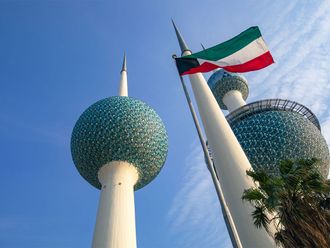
Dubai: In a major update to the UAE Corporate Tax rules, a Domestic Minimum Top-up Tax (DMTT) will become effective for the financial years starting on or after January 1, 2025.
This tax will apply to multinational enterprises operating in the UAE with consolidated global revenues of 750 million euros or more in at least two out of the four financial years immediately preceding the financial year in which the DMTT applies.
The standard UAE corporate tax is set at 9%. The Domestic Minimum Top-Tax will mean that multinationals will need to pay an annual tax on top of that on their UAE generated revenues.
The step reflects the 'UAE’s commitment to implementing the Organisation for Economic Co-operation and Development’s (OECD) Two-Pillar Solution', which is aimed at creating a worldwide fair and transparent tax system.
The UAE’s implementation of the DMTT will closely align with the OECD’s GloBE Model Rules.
Also, the Pillar Two rules require large multinational enterprises (MNEs) to pay a minimum effective tax rate of 15% on profits in every country where they operate. (The Pillar 2 tax rules were a response to global businesses opting to have their corporate HQ in a low tax environment and thus escape higher tax on profits in their home country. Pillar 2 sets the minimum tax rate at 15%.)
R&D tax break
To encourage R&D activities, the Ministry of Finance will consider a specific tax incentive for R&D related investments. Based on feedback received during public consultations conducted in April 2024, the 'proposed incentive is expected to take effect for tax periods starting on or after January 1, 2026'.
"The R&D tax incentive will be expenditure-based, offering a potential 30-50% tax credit and will be refundable depending on the revenue and number of employees of the business in the UAE," said a statement.
Major employers to get tax benefits?
Another possible tax incentive being considered is a refundable tax credit for high-value employment activities. "This aims to encourage businesses to engage in activities that deliver significant economic benefits, stimulate innovation, and enhance the UAE’s global competitiveness," said a Ministry of Finance statement.
How will employment tax credit work?
This incentive is proposed to take effect on January 1, 2025 and granted as a percentage of eligible salary costs for employees engaged in high-value employment activities. "This includes C-suite executives and other senior personnel performing core business functions that add substantial value to the UAE economy," said the MoF.
"The final form and implementation of the above mentioned proposed incentives, are subject to legislative approvals," said a statement. "The Ministry of Finance will provide further details and guidance for taxpayers regarding these incentives in due course."











